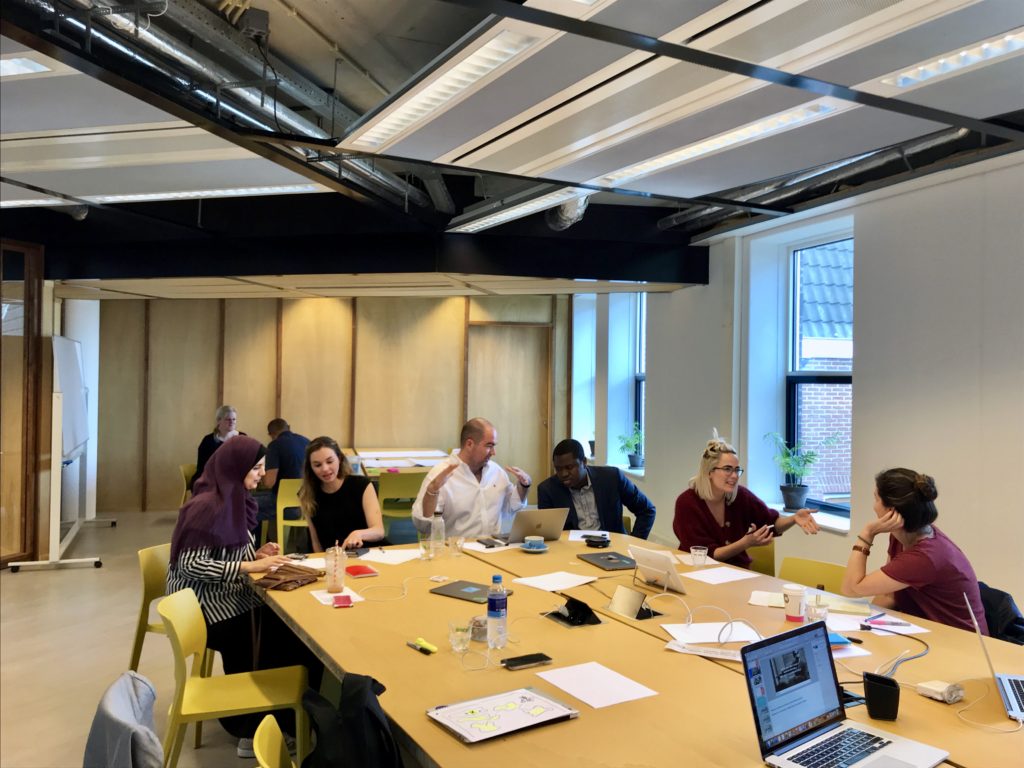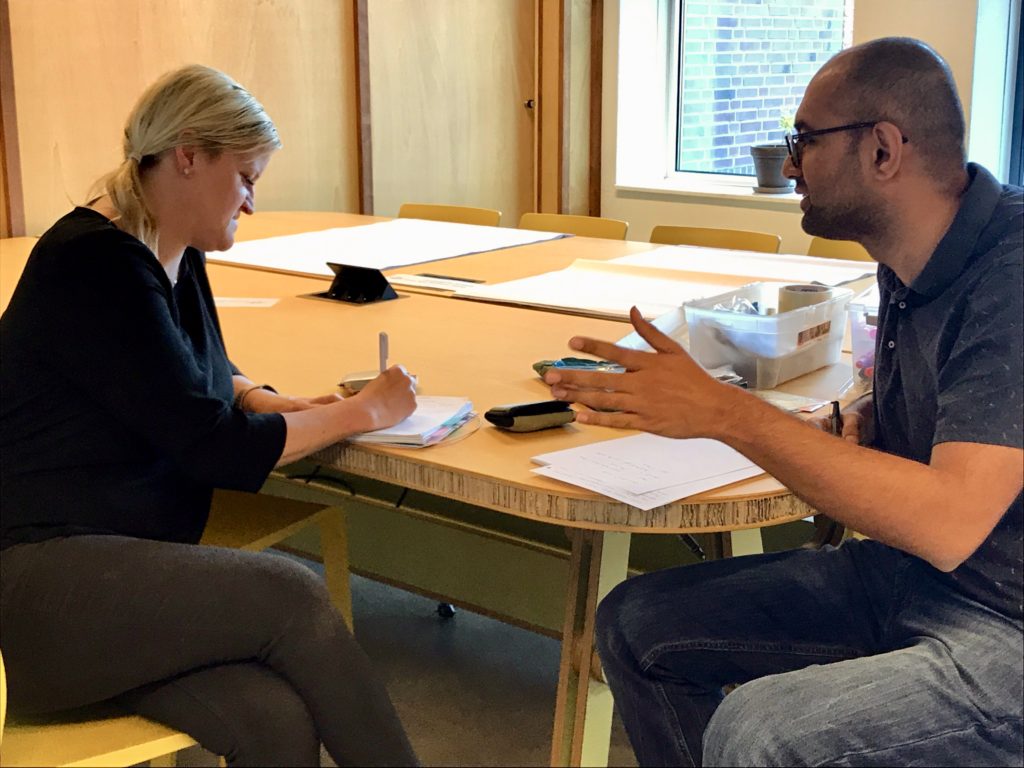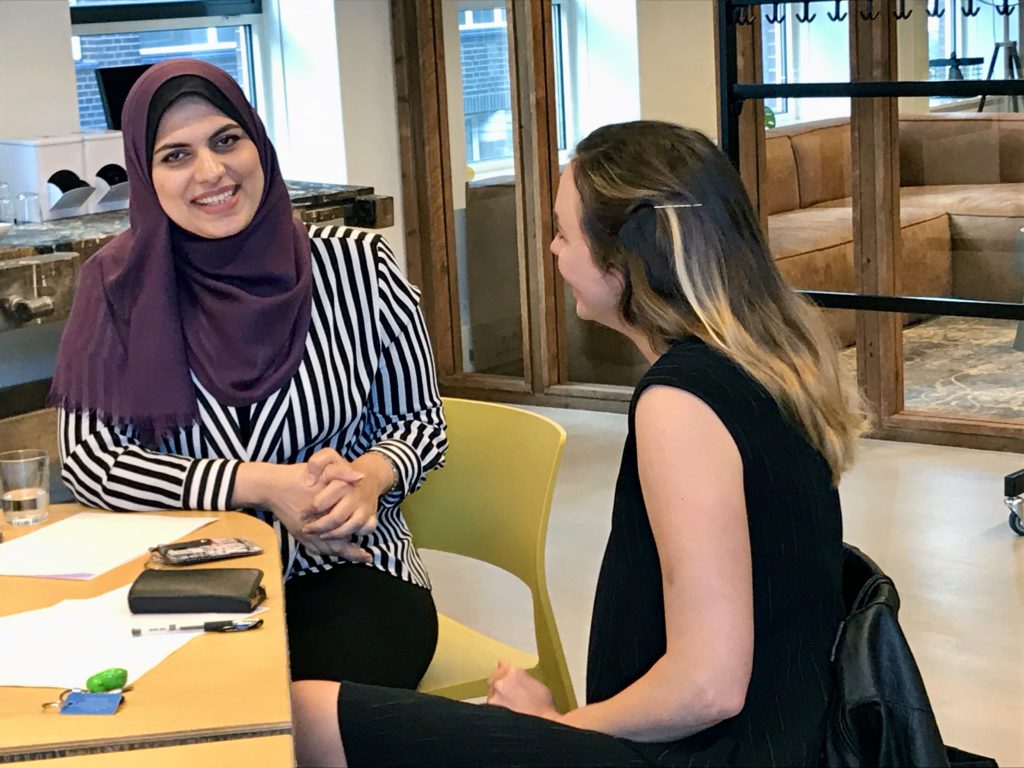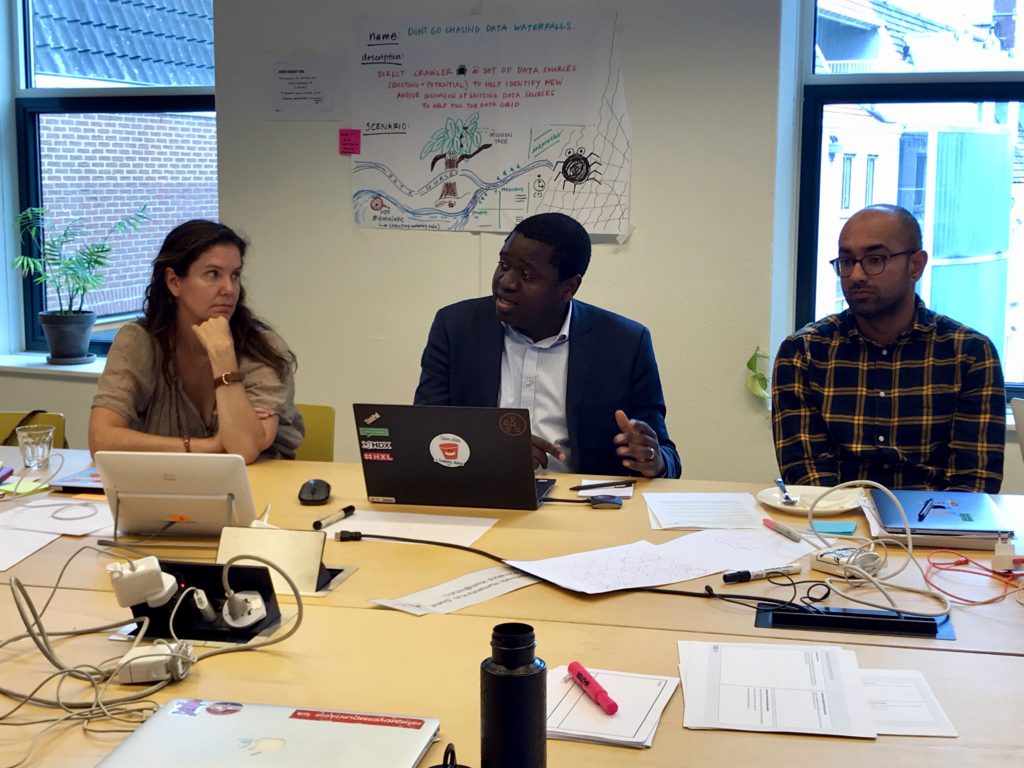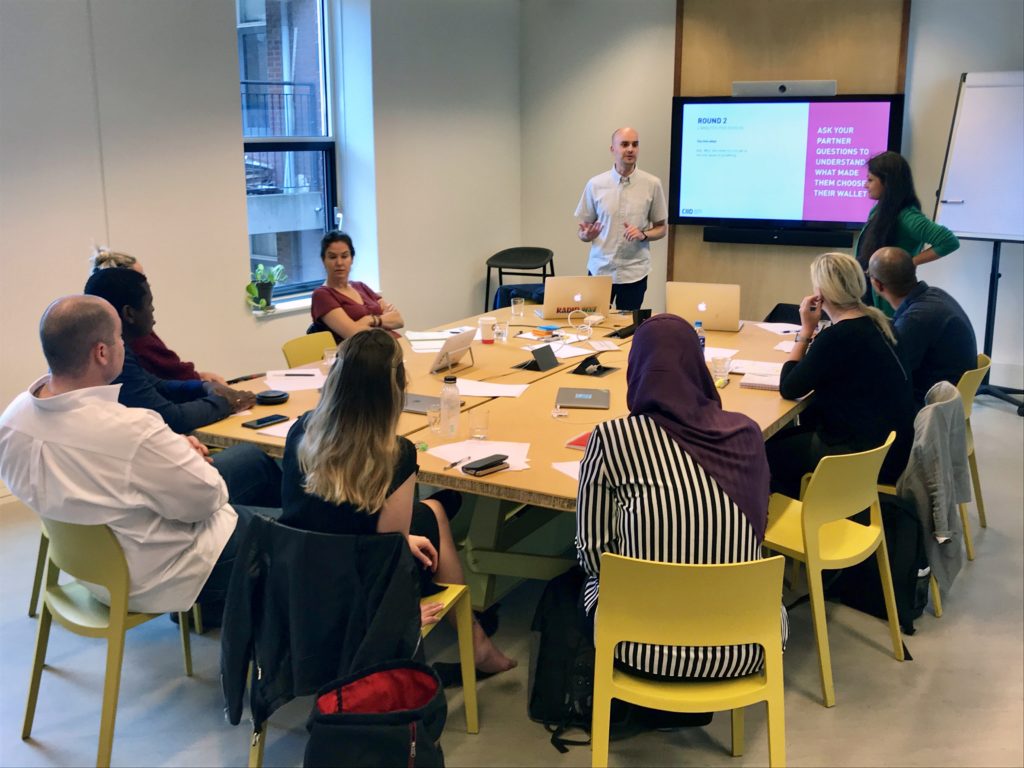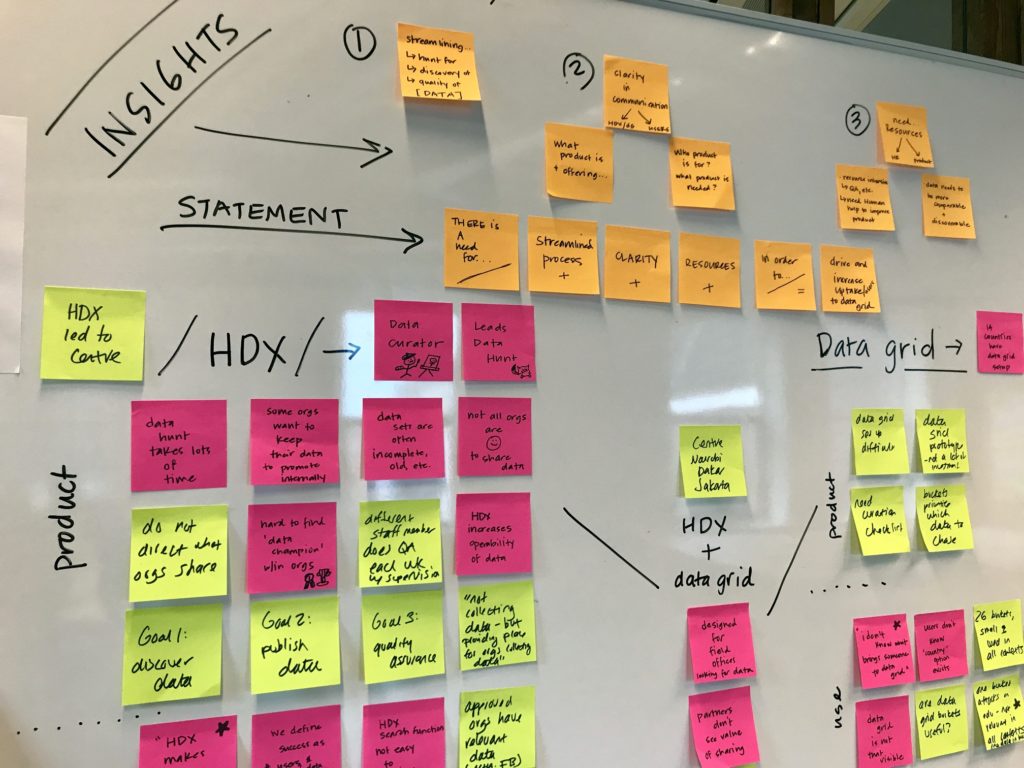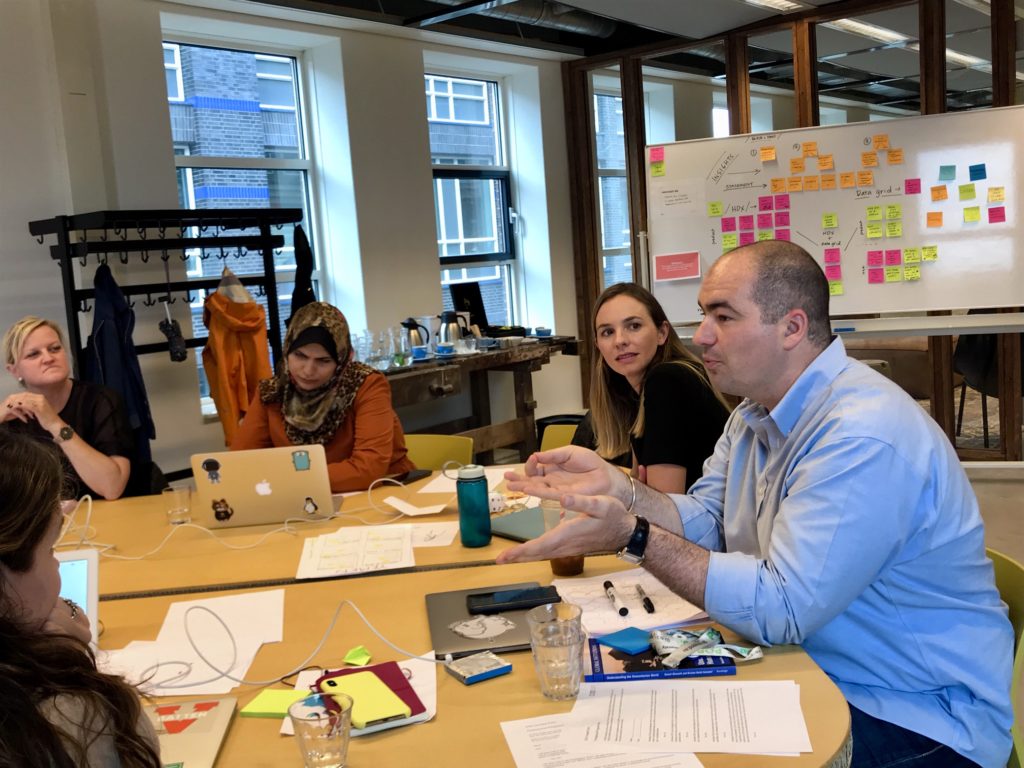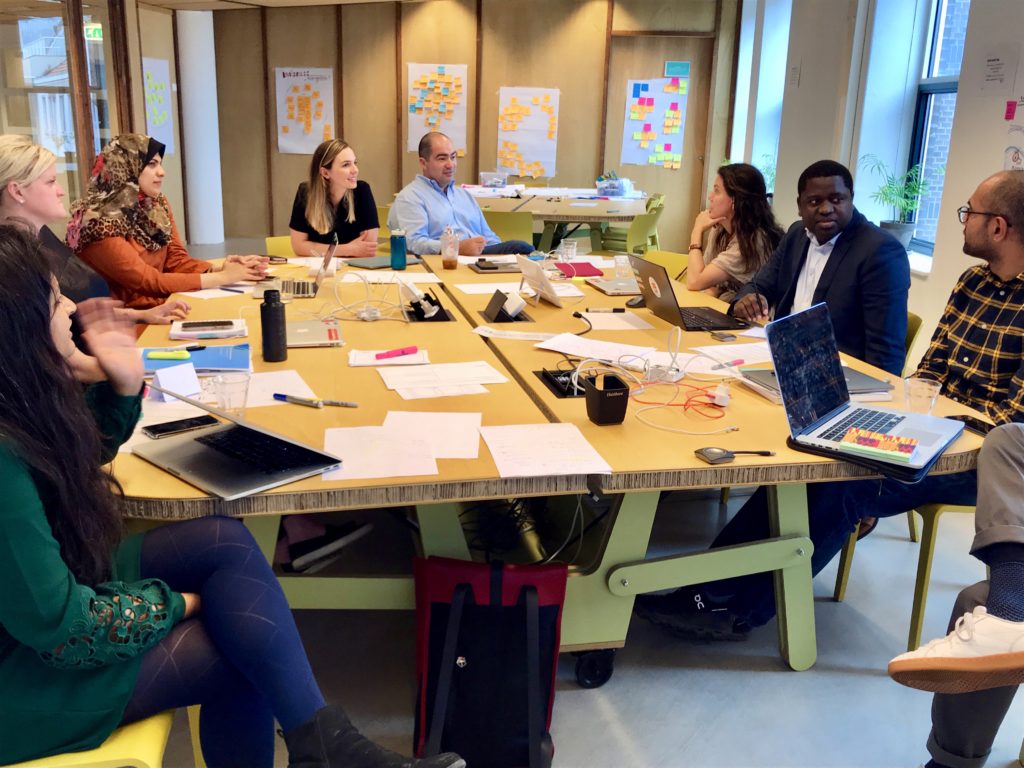Share
In October, a group of OCHA Humanitarian Affairs Officers (HAOs) from across our field offices gathered in The Hague for a weeklong ‘bootcamp’ on working with data. This crash course is one component of the Centre’s new Data Literacy Foundation Programme which runs for three months and includes remote training and mentoring for non-technical humanitarians.
As we saw in the results of our data skills survey, humanitarians are being asked to engage more with data and to use data to improve operational decision making. Unfortunately, if you are not working with data regularly, your data muscles are underdeveloped. Enter the data bootcamp — our version of data strength training.
“I feel more comfortable reading charts and graphs, with a better understanding of how to reinforce messages with visuals. The data literacy programme is making an impact on my work.”
-Data Bootcamp Participant
We designed our bootcamp to give participants an understanding of their work within the data management process from framing questions and data cleaning to the detailed work of analysis and visualising for effect. Below we share some do’s and dont’s for running data bootcamps in case useful for other organizations that are getting serious about upskilling their staff.
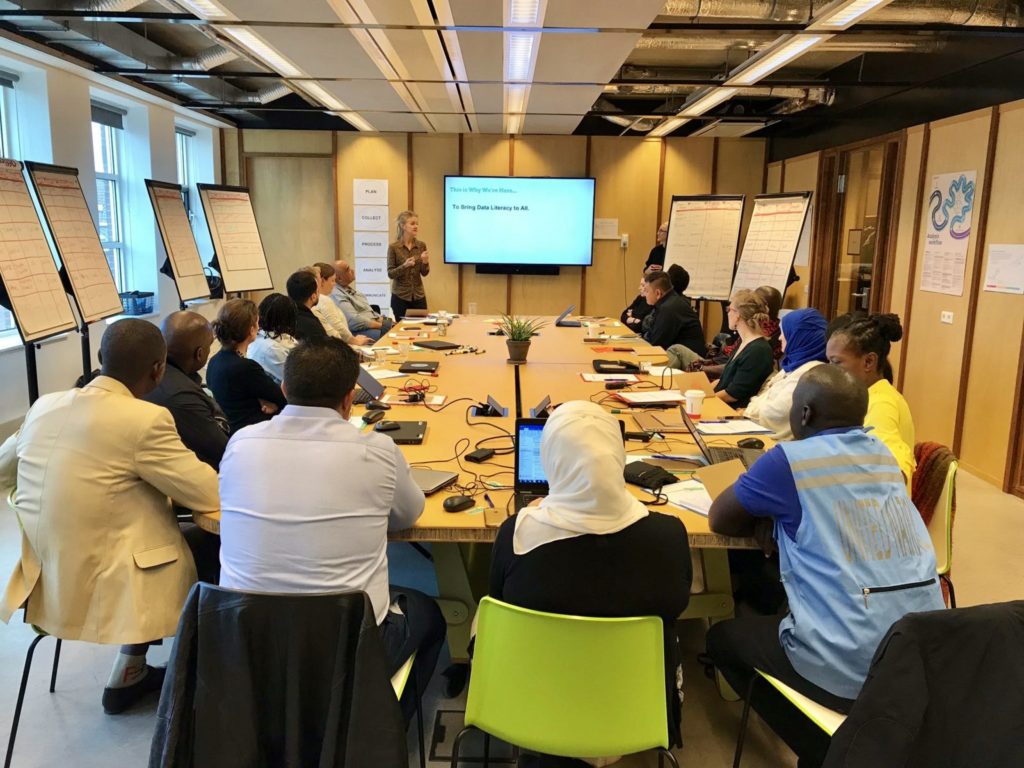
DO invest in data training for non-technical humanitarians.
Training is an investment. Rather than asking, should we invest in building data skills, we should be asking what is the cost of low levels of data literacy? At every stage of the data management process, there are people making choices about what data to collect, how to analyze it, and what insights to present. Without investment in data literacy, we are creating inefficiency and missing signals.
The good news is that the humanitarian sector is not alone in trying to build data literate teams. Companies from The New York Times to Airbnb are sharing their strategies for upskilling non-technical team members. We can learn from their approaches and be creative about how we train people to work with data effectively, and at scale.
DON’T assume a level of comfort working with data.
We found that our first HAO cohort had a good understanding of data management theory but limited practical skills for working with data. For instance, many were familiar with and versed in the concepts of analytical frameworks but not on how to create or analyse a multi-select question in Excel. Given the role of HAOs within OCHA, this was not surprising; they were not hired for their spreadsheet wizardry.
To calibrate the bootcamp to the actual knowledge level of participants, we administered a short quiz before they arrived for the training. The quiz included questions on how to detect errors, standardize data collection and create succinct visualisations on multiple variables. The results gave us a better understanding of their data skills. During the training, we adjusted our demonstrations to emphasize what would be most relevant for their day-to-day work.
DO focus on practical, transferable data skills.
When we were designing the three-month training programme, there was some skepticism about the value of using precious face-to-face time to go through the basic functionality of spreadsheets. There was a sense that if people wanted to improve their spreadsheet skills, they already would have. After all, there is no shortage of high-quality, free training resources available online.
Yet, everything we heard during our user research indicated that an underlying challenge was a lack of spreadsheet skills. We discovered that self-directed learning is useful when you have a clear idea of what you want to learn and why. If you know the feature or function that will help solve your data challenge, then online resources are great for troubleshooting. Otherwise they can be overwhelming. In addition, these resources are not tailored to the ways in which humanitarians encounter data.
Depending on the day, an HAO might need to assess the quality of secondary data, present data-driven insights to a diverse audience, design data collection forms, or conduct analysis. The skills needed range from basic statistics to understanding design principles to visualizing data. At the bootcamp, we focused on building practical data skills that would deepen the participants’ understanding of what data is, how to approach it and what data can and can’t tell you.
“I have been quicker and more effective at extracting data and using filters, searches and pivot tables in preparing required documents for senior managers and leadership.”
-Data Bootcamp Participant
DON’T overlook soft data skills.
Although the bootcamp sessions on Excel were popular, we made sure to spend time on building crucial interpersonal data skills. In practice, this means understanding the language needed to engage constructively with data teams and having the confidence to ask clarifying questions about data. For instance, being versed in the mechanics and terminology for merging and summarising data in Excel creates a solid starting point for identifying and discussing anomalies and patterns in data sets with colleagues.
Ultimately we want technical and non-technical staff to be able to connect around data, both by speaking a common language and by understanding how to work with data. This is how we will bring together diverse perspectives and collective experience to ask better questions and generate more insightful analysis.
DO meet participants at their technical level.
The group of HAOs who attended our bootcamp were coming at data literacy from different vantage points. We tried to create a space for learning that pushed participants outside their comfort zone without making them feel overwhelmed. For instance, when we trained on Excel we used messy, real-life datasets but in retrospect we should have started with simpler datasets that eased participants into the functionality of spreadsheets.
Striking the balance between ability and challenge is key to ensuring participants stay engaged. Finding this balance requires real-time calibration during the training as the level of the participants becomes clear.
Follow-up and Support
The bootcamp was the first step in the HAO’s data strength training programme. We will be working with participants remotely until December. This support includes regular one-on-one sessions where they can explore their new skills and ask questions. We also send out weekly tips and resources to reinforce their learning.
If you have any questions about our approach to data training, please contact us at centrehumdata@un.org.
